What should the ideal manager be like? The question is entirely in the tradition of Eastern wisdom with its constant search for the ideal person, and the greatest experts have been trying to find the answer to it for many decades.
This issue is especially relevant for future managers – that is, today’s ordinary employees who will be promoted in the future. And the most important thing, most likely, is not to forget about your roots, about where each boss came from, and always treat your subordinates well.
Matthew Rechs, an American business coach and product manager who has worked at such large companies as FreshBooks, Adobe, Typekit and WPP, reflects on this. Matthew, who himself started as an ordinary employee, is well aware of the work processes, so he created a special list of tips for managers on his Twitter account with more than 11K subscribers.
More info: Twitter
This American business coach and product manager created a special list of tips for every manager
Image credits: Rawpixel Ltd (not the actual photo)
More precisely, this list was made in the form of a kind of oath – eleven promises from the manager. In other words, what any manager must promise their employees before taking on the position.
So, the first point – the manager can never cancel a weekly 1:1 meeting with an employee, while the employee has the right to do so at any time. The second point, related to the first one, is that the 1:1 agenda should be specified in the meeting invitation.
Image credits: MrEchs
One of the key themes in Rechs’ thread is giving all the information via 1:1 meetings with a prearranged agenda
According to the third point, it is the manager who schedules the meeting – and yes, without forgetting an agenda. The fourth point stipulates not forcing the employee to make small talk in DMs, but immediately moving on to the essence of the issue.
The fifth point is no less important – any important news that relates to the employee’s work and their status should be reported 1:1, and not at the common meeting. Finally, any feedback on the employee’s work, according to the sixth promise, must be fresh.
Image credits: MrEchs
The seventh promise is that the manager will always trust the employee when it comes to scheduling their own work time. After all, who, if not the employee themselves, is better at knowing about their time management?
Image credits: MrEchs
The coach supposes that managers should give their employees more freedom in choosing ways of reaching goals and time management
The eighth promise follows from this – the manager sets a goal, and the employee personally chooses the ways in which it will be achieved. If they need any advice, then, according to the ninth principle, there are always colleagues to their left and right who are ready to help, because well-coordinated teamwork is the keynote to success.
Image credits: MrEchs
Image credits: Richard Clifford (not the actual photo)
Matthew’s ideas were fully understood and well received on Twitter, with the whole thread garnering over 58K likes
No less important is the tenth promise – if an employee directly addresses the higher management, skipping a level, the manager will take it completely normally. And, of course, the manager will never minimize the employees’ contribution in achieving a team result, exaggerating his own role, as follows from the eleventh promise.
Matthew’s principles seem perfectly logical and well-balanced – it’s no surprise that people online, reading them, mostly agree. Almost 2K people joined his thread on Twitter and most of them told Matthew they agree and heavily support him.
Image credits: imlazar
Image credits: adamkstinson
Image credits: adriennefriend
Image credits: Althede
Image credits: EyeMyData
People regretted that the managers they have worked for before did not follow these principles
And of course, some people felt that unfortunately, they have only met bosses who did not follow almost any rule phrased by the original poster, so their work process sometimes looked like a complete nightmare.
Image credits: hyuumanatees
Image credits: r_heskin
Image credits: adriennefriend
Image credits: EyeMyData
Image credits: allor
Image credits: tigerlilytse
Image credits: itsadanoteyda
Image credits: jonasdowney
People on TikTok also support these rules massively
For example, TikToker miriam_tinny, talking about Rechs’ principles in her own video, exclaims: “Well, why didn’t my bosses know about these promises before?”
Miriam heavily agrees with every point Matthew put forward, stating that every point is a green flag. “I don’t know if I’ll ever be a manager,” says Miriam, “But I know for sure that I would like to be like that.”
@miriam_tinny Bosses need boss training, truly #jobs#career#work#takeaNAIRbreak♬ original sound – Miriam
Of course, we know that there are no ideal managers, but you have probably met bosses like this in your career. If so, be sure to share your story, and if you are also a manager, then tell us if you’ve ever followed any of these principles. We are sure it will definitely be exciting.
I realize I work in a different field, but if I had to have a weekly 1:1, I think I'd go insane. I can't believe someone suggest daily meetings. That sounds like a nightmare. My supervisor has an open door policy and I see her as needed, which is typically about once every 6 weeks or so, unless I stop in to say hello. Like, just trust me to do my job and I'll do it. Micromanagement is the worst.
I agree, a weekly 1:1 is overkill. My manager has instituted a monthly 1:1 meeting policy since we went virtual, and that works great for our team.
Load More Replies...10. I think an employee should address the manager first and see if it can be remedied on their level first before jumping to the next level of management. If it can't be remedied, then the manager should know the issue will be taken higher. I don't think the manager (especially a good one) wants to be blind-sided either by something that skipped them but then came from higher up.
I agree to this bc what seems like a fire to someone at a lower level could be a small flame to someone at a higher level. It doesn't mean the flame shouldn't be addressed and corrected but if you skip a person and start adding more people to the issue, you usually make it harder and longer to correct it. Most of the time the higher up will speak to the front level manager to correct or address the concern anyways. It's good to go up the chain of command, but not be afraid to skip past someone if they gave you an unsatisfactory answer.
Load More Replies...I realize I work in a different field, but if I had to have a weekly 1:1, I think I'd go insane. I can't believe someone suggest daily meetings. That sounds like a nightmare. My supervisor has an open door policy and I see her as needed, which is typically about once every 6 weeks or so, unless I stop in to say hello. Like, just trust me to do my job and I'll do it. Micromanagement is the worst.
I agree, a weekly 1:1 is overkill. My manager has instituted a monthly 1:1 meeting policy since we went virtual, and that works great for our team.
Load More Replies...10. I think an employee should address the manager first and see if it can be remedied on their level first before jumping to the next level of management. If it can't be remedied, then the manager should know the issue will be taken higher. I don't think the manager (especially a good one) wants to be blind-sided either by something that skipped them but then came from higher up.
I agree to this bc what seems like a fire to someone at a lower level could be a small flame to someone at a higher level. It doesn't mean the flame shouldn't be addressed and corrected but if you skip a person and start adding more people to the issue, you usually make it harder and longer to correct it. Most of the time the higher up will speak to the front level manager to correct or address the concern anyways. It's good to go up the chain of command, but not be afraid to skip past someone if they gave you an unsatisfactory answer.
Load More Replies...
 Dark Mode
Dark Mode 

 No fees, cancel anytime
No fees, cancel anytime 





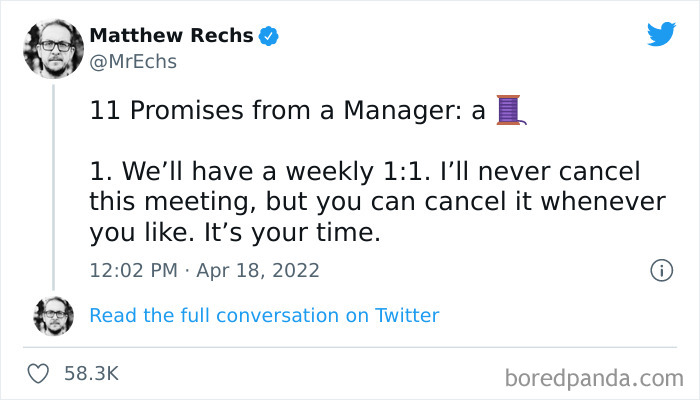


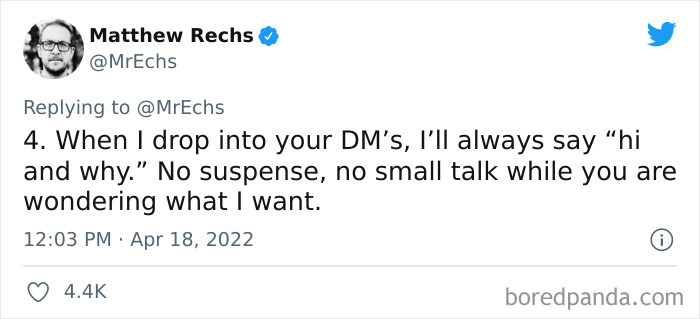
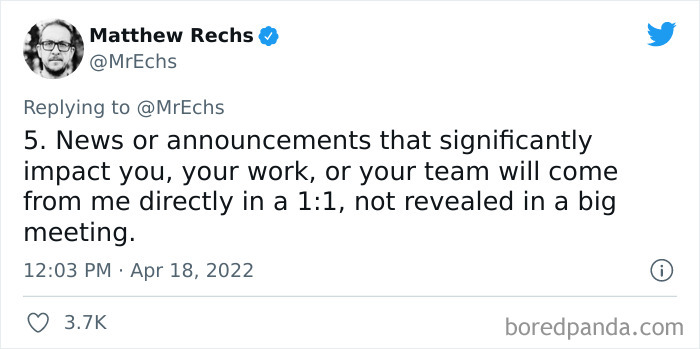
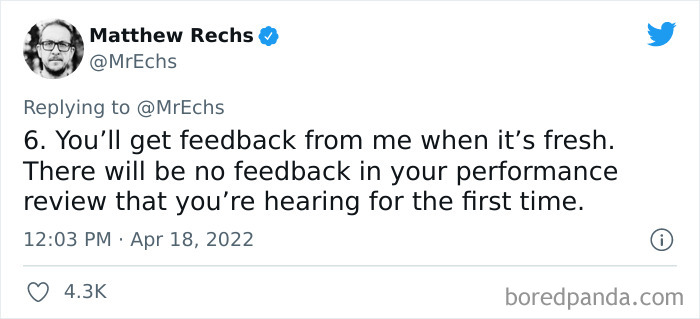
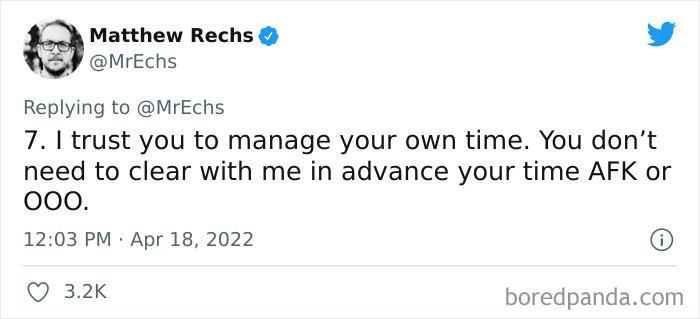
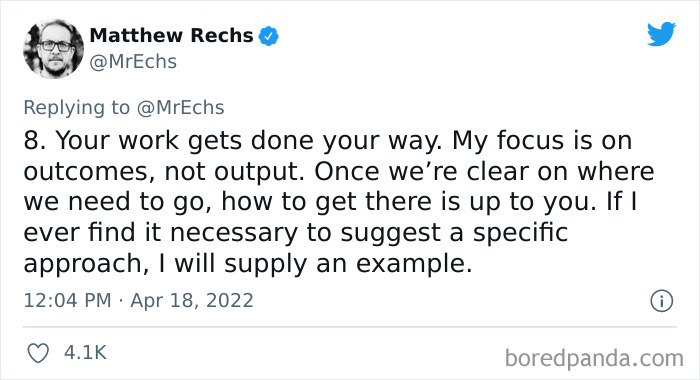
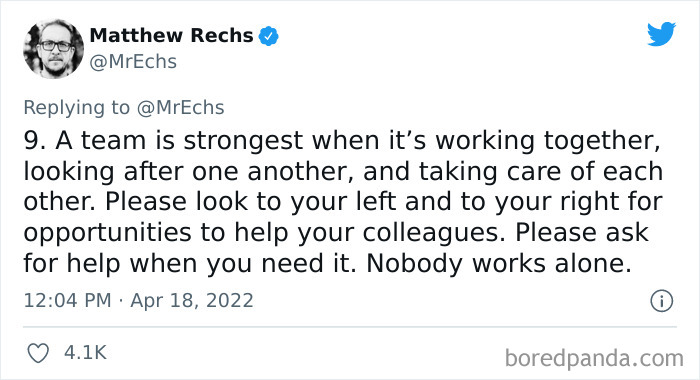



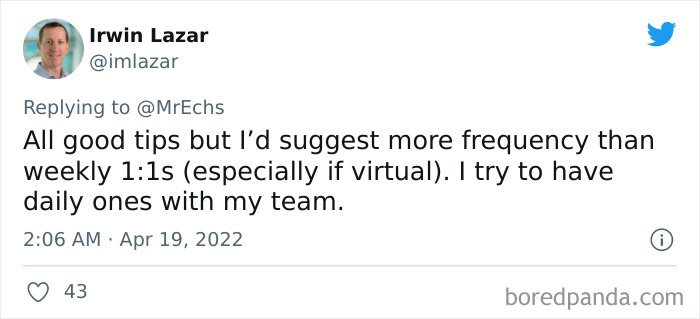
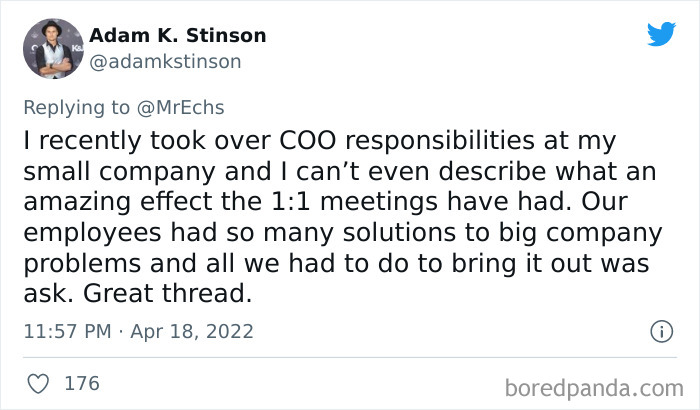
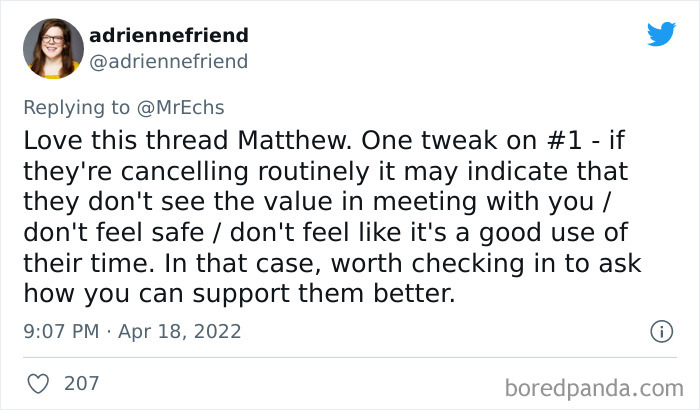
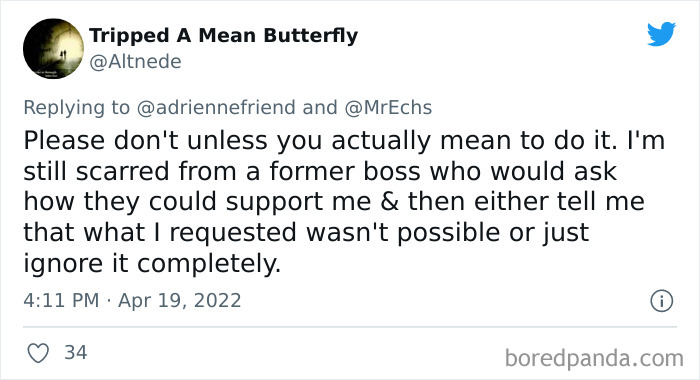
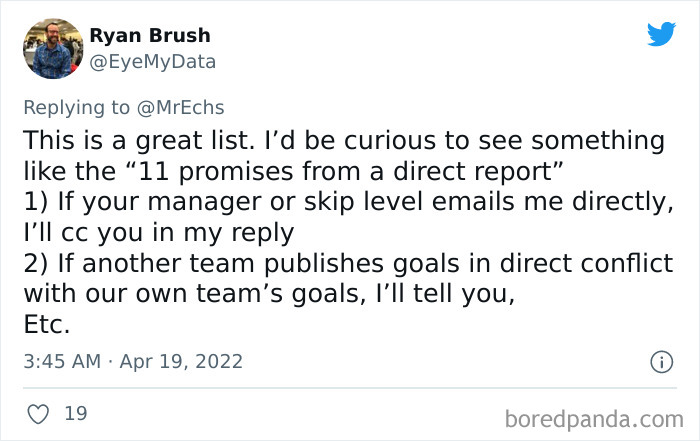
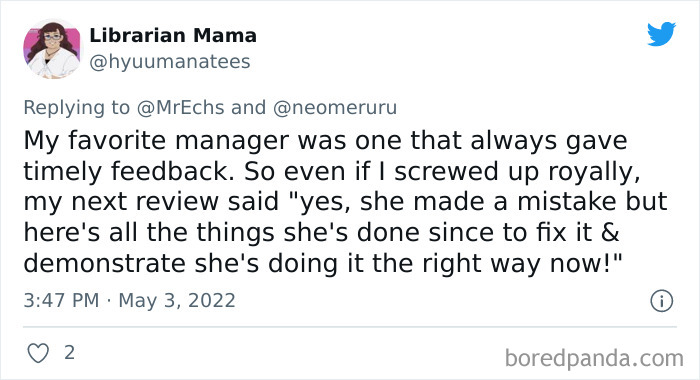
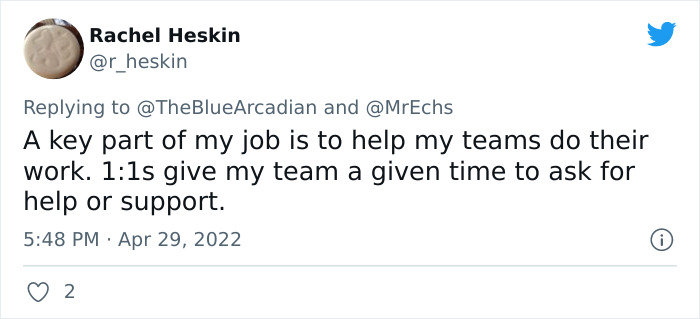
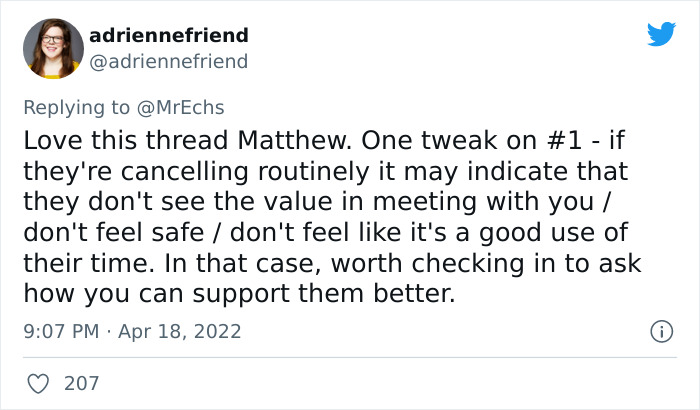
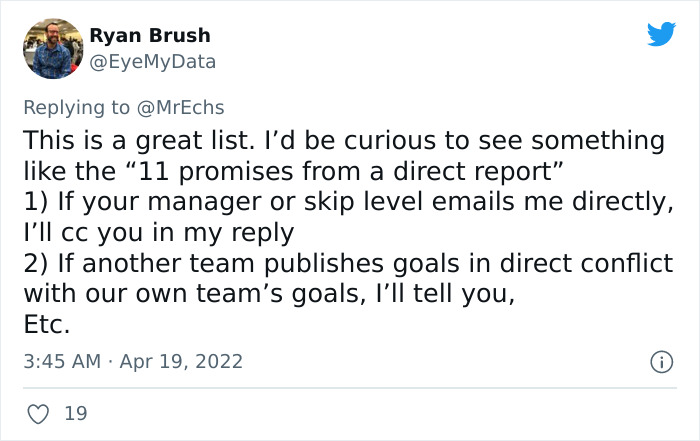

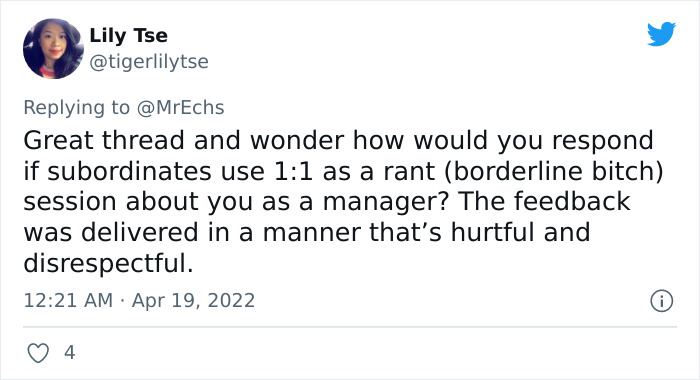
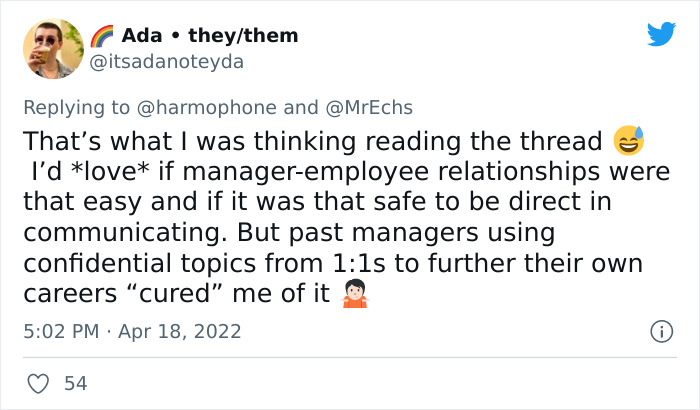












































80
18